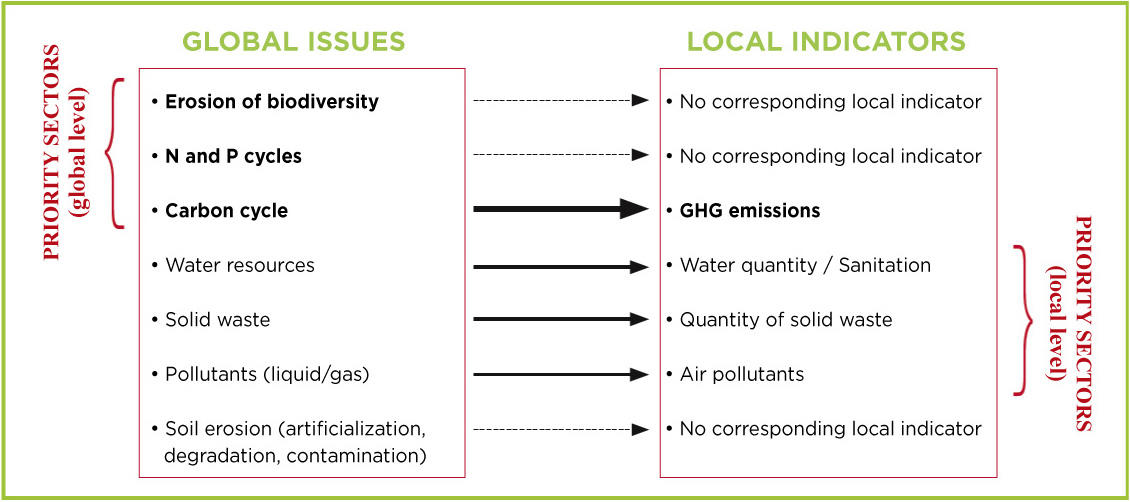By 2050, more than 80% of the world’s population will live in urban areas. To meet the environmental challenges posed by this historic shift, cities—as key players in enabling sustainable change—will need to cut pollution levels and use resources more efficiently. They will need reliable tools to measure their environmental performance.
Defining the sustainable city, evaluating the urban environmental footprint, designing relevant metrics… These are the aims of this study on the measurement of urban environmental performance, conducted by the Institute at the request of the United Nations Environment Programme (UNEP).
2011
World
Cities & urban services
Indicators for evaluating environmental policies
In 2011, following the study conducted with the Collège d’Europe , which was welcomed in 2010 by the World Bank/UN-Habitat/UNEP working group, the Institute pursues its thinking about the sustainable city, at the request of the Division of Technology, Industry and Economics (DTIE) of the United Nations Environment Programme (UNEP). In collaboration with UNEP, the Institute looked how we can measure urban environmental performance by designing indicators to evaluate the environmental policies that are implemented.
Global issues and local indicators
Thanks to this study, we can now define the global and local environmental impacts of the cities under consideration. It points to sectors of primordial importance that are nonetheless scarcely taken into account, if at all, such as biodiversity (see box). The bibliographic research also provides an up-to-date overview of the indicators and tools that already exist, or need to be defined, to enable rigorous evaluation.
« The study identifies the sectors that need to be integrated in order to establish a relevant common metric, and ends with an inventory of existing, or missing, indicators for achieving that goal. »
The initial results of the study were presented in Gwangju, South Korea, at the “Green City, Better City” Summit, organized by UNEP and the cities of Gwangju and San Francisco in October 2011, and at the UN Conference on Sustainable Development (Rio+20).
Green City, Better City” Summit, Gwangju (South Korea)
Organized by the cities of Gwangju and San Francisco and by UNEP (United Nations Environment Programme), the Gwangju Summit provided an opportunity to present the Institute’s work on measuring urban environmental performance to an international panel made up of Julian Castro, Mayor of San Antonio (TX, USA), Adri Duivesteijn, Deputy Mayor of Almere (NL), Kim Jung-In, University of Chung-Ang (South Korea), Patricia McCarney, Professor and Director of the Global Cities Institute, University of Toronto (Canada), and Bae Jeong Hwan, Professor, University of Chonnam (South Korea)
The Institute presented the results of the study at the Global Town Hall session of Rio+20, dedicated to UNEP’s launch of the Global Initiative for Resource Efficient Cities at the Rio+20 Summit.
Correspondance between global issues and local indicators


